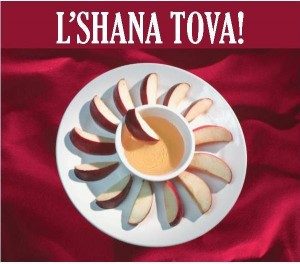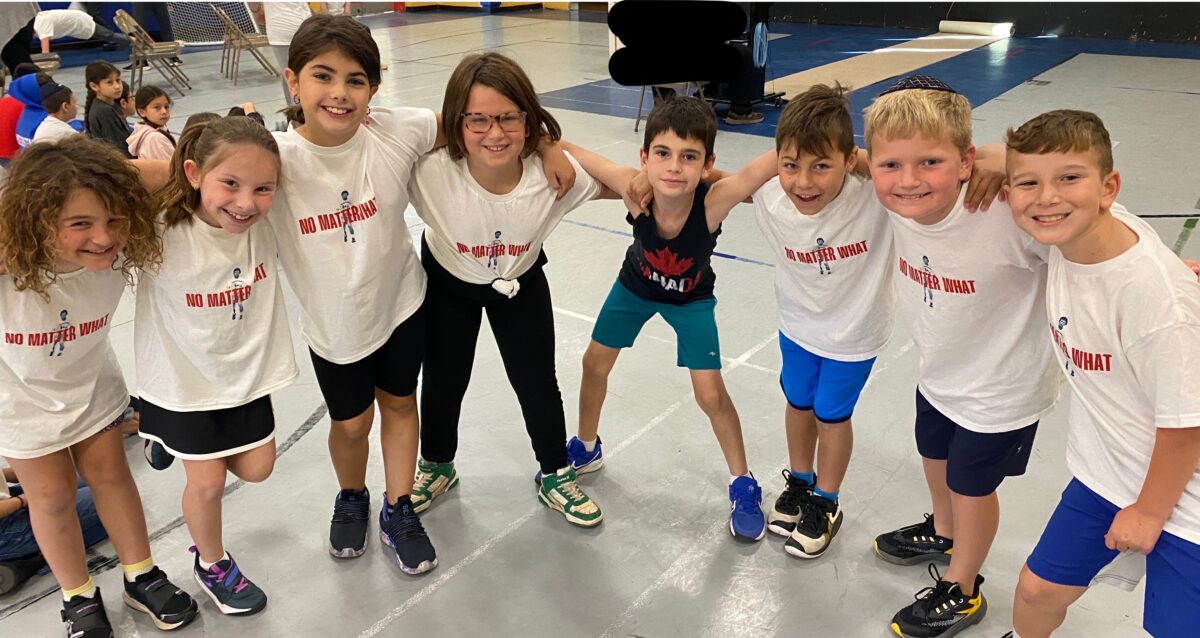There is an idea in Talmudic hermeneutics (which defines the rules and methods for investigation and exact determination of meaning of the scriptures in the Jewish Bible, within the framework of Rabbinic Judaism) that you can unlock meaning by looking at the juxtaposition of biblical texts that don’t appear to be linked or related on the surface. [For example, the fact that the law of shatnez in Deuteronomy 22:11 (the forbidding of wearing garments of mixed wool and linen) is immediately followed by the law of tzitzit in Deuteronomy 22:12 leads the rabbis to deduce through the juxtaposition of sections that you can wear a garment bearing tzitzit that is a mix of wool and linen. Don’t worry if none of what I just wrote makes sense to you.]
But what if we applied this rule of “juxtaposition of sections” to the calendar?
Over the next few days at OJCS, we have an “only in a Canadian Jewish day school” convergence of events: today’s annual Terry Fox Run, Monday’s National Truth & Reconciliation Day, and then we head into Rosh Hashanah. While each occasion is distinct in purpose and history, there is something deeply powerful about experiencing them in close proximity. For children and families in a Canadian Jewish K-8 day school, these moments offer profound lessons that transcend individual contexts and connect us in shared values of courage, reflection, and responsibility.
The Legacy of Terry Fox: Courage and Collective Action
Terry Fox is a national hero whose story resonates far beyond Canadian borders. His Marathon of Hope is more than just a symbol of endurance; it reflects the courage to pursue what seems impossible. For our students, participating in a Terry Fox Run is about more than running. It’s an opportunity to connect with the value of mesirut nefesh—the Jewish concept of self-sacrifice for a higher cause. When children run in Terry’s name, they aren’t just contributing to cancer research; they are internalizing the idea that each of us can make a difference, no matter our limitations. We teach them that Terry’s story is about turning personal adversity into global activism—a message that resonates deeply with our school’s North Stars.
National Truth & Reconciliation Day: Reflection and Responsibility
Our commitment to holding space for National Truth & Reconciliation Day into our school calendar has become an essential part of how we engage our students with Canada’s complex history. The day is set aside to remember and honour the survivors of residential schools, acknowledging the pain and trauma inflicted upon Indigenous communities. For a Jewish day school, it offers an opportunity to reflect on the intersections between our own historical experiences and those of Indigenous peoples. Our students learn that justice, tzedek, isn’t just a concept confined to Jewish history but is a universal human responsibility. We want our children to understand that reconciliation isn’t a one-time event but an ongoing commitment to learning, listening, and acting in solidarity.
Rosh Hashanah: A Time for Renewal and Change
Rosh Hashanah, the Jewish New Year, offers a moment of spiritual reflection that echoes the themes of both Terry Fox and National Truth & Reconciliation Day. As we enter the Yamim Noraim, the Days of Awe, we emphasize personal growth, repentance, and renewal. We teach our students that while this holiday is about introspection, it is also about action—about making changes in our lives that positively impact those around us. Much like Terry Fox’s unyielding dedication to his cause, and much like the ongoing process of reconciliation, Rosh Hashanah calls us to pursue tikkun olam—the repair of the world. Whether in the context of family, community, or society at large, Rosh Hashanah reminds us that we have the power and responsibility to create meaningful change.
A Unique Canadian Jewish Experience
What makes these three juxtaposed events especially meaningful is the way they intersect within the unique fabric of our Canadian Jewish identity. Terry Fox’s legacy, Truth & Reconciliation Day, and Rosh Hashanah each stand on their own, but together, they represent a powerful triad of courage, responsibility, and renewal. In a Jewish day school like ours, we aim to provide students with the tools to engage fully as young Jewish Canadians, understanding that their identities are shaped by both their heritage and their broader Canadian context. We want our students to ask big questions: How do we honour the past while building a better future? What does it mean to live as a proud Jew and a responsible citizen?
As this extraordinary week unfolds, I am eager to see the questions and discussions that arise among our students and families. How can we live with courage like Terry Fox? What does it mean to actively participate in reconciliation efforts? How can the reflection and renewal of Rosh Hashanah guide us in the year to come? These are the kinds of questions that define the educational journey at OJCS. While the answers may not come easily—or at all—the process of engaging with them is where the real learning happens. As always, I’m excited to see how our students navigate the intersection of these significant moments, and I look forward to the lessons they will teach all of us in the process.

 As the eve of a new Jewish Year approaches, it is my most sincerest hope that this is the year we’ve been waiting for. To all the teachers, staff, parents, students, donors, supporters, and friends in this special school- thank you for your enthusiasm and your hard work. 5785 is shaping up to be a quite an amazing year!
As the eve of a new Jewish Year approaches, it is my most sincerest hope that this is the year we’ve been waiting for. To all the teachers, staff, parents, students, donors, supporters, and friends in this special school- thank you for your enthusiasm and your hard work. 5785 is shaping up to be a quite an amazing year!
From our family to yours, “Shanah tovah!”


